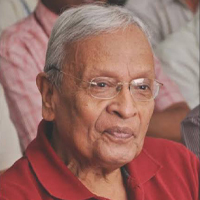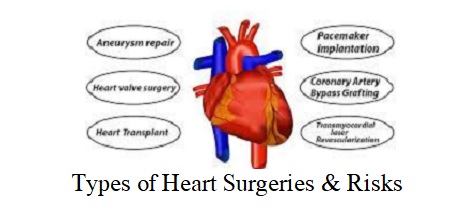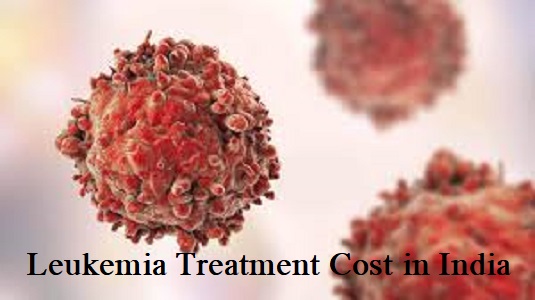Pancreatic Cancer- Types, Stages, Symptoms, Causes, Treatment, Cost & Risk
Pancreatic cancer is a type of cancer that begins in the pancreas, an organ necessary for digestion and blood sugar management. The pancreas produces digestive enzymes which help in food digestion and it produces hormones such as insulin and glucagon that regulate blood sugar levels. Pancreatic cancer affects men more than women on a global scale, with an incidence rate of 5.5 cases per 100,000 for men and 4.0 cases per 100,000 for women. Pancreatic cancer may develop in any part of the pancreas; however, around 70% of pancreatic cancers occur in the upper part of the pancreas. Go ahead to get details about pancreatic cancer treatment, cost, types, causes, symptoms, diad
Due to its silent progression, pancreatic cancer often goes unnoticed until it reaches its advanced stage. Symptoms may include jaundice, abdomen or back pain, and unexplained weight loss, but these usually occur late in the development of the illness. The prevalence of pancreatic cancer treatment in India is 0.5 to 2.4 cases per 100,000 for men and 0.2 to 1.8 cases per 100,000 for women.
Types of Pancreatic Cancer
Pancreatic cancer is divided into two types:
- Pancreatic Adenocarcinoma: The most common type of pancreatic cancer, accounting for more than 90% of cases. It develops in the pancreas’ exocrine cells, which develop digestive enzymes that help in food digestion. Exocrine cells also produce pancreatic ducts, which deliver enzymes to the intestines. Pancreatic adenocarcinoma is known for its aggressive nature and often detected late.
- Pancreatic Neuroendocrine Tumours (NETs): NETs are a rare kind of pancreatic cancer that accounts for less than 10 percent of occurrences. They are also known as islet cell tumors since they arise from pancreatic endocrine cells. Endocrine cells are in charge of hormone production, which influences many bodily activities, including blood sugar management. Pancreatic NETs grow more slowly than exocrine cancers. They may overproduce hormones in certain cases, leading to specific symptoms associated with hormone excess.
Risk Factors Associated with Pancreatic Cancer
Pancreatic cancer is a complex disease with various risk factors, such as:
- Smoking: Cigarette and tobacco smoking have been widely acknowledged as a risk factor for pancreatic cancer.
- Alcohol intake: Heavy alcohol intake may increase the chance of developing pancreatic cancer.
- Obesity: Excess weight is associated with an increased risk of pancreatic cancer. Maintaining a healthy weight is essential for reducing this risk.
- Diet: A diet high in red and processed meats, fried foods, sweets, or cholesterol may further increase the risk of pancreatic cancer.
- Diabetes: Type 2 diabetes, particularly when recently diagnosed, may be a symptom of pancreatic cancer.
- Chronic Pancreatitis: Chronic pancreatitis, or inflammation of the pancreas, can increase the risk of developing pancreatic cancer.
- Liver Damage: Liver diseases, especially cirrhosis, are associated with an increased risk of pancreatic cancer.
- Toxic Chemicals: Occupational exposure to certain chemicals, such as those used in metalworking and pesticides, has been associated with an increased risk of pancreatic cancer.
- Family History: A family history of pancreatic cancer, as well as other diseases related to it, such as ovarian or colon cancer can raise a person’s risk. Genetic mutations may be involved in some cases.
- Genetic Syndromes: Certain inherited genetic diseases, such as Peutz-Jeghers syndrome, Lynch syndrome, familial atypical multiple mole melanoma syndrome, and hereditary pancreatitis, can also increase the risk of pancreatic cancer.
- Age: While pancreatic cancer may affect anyone at any age, it is most often detected in people over the age of 55.
- Gender: Men are somewhat more susceptible than women to develop pancreatic cancer.
Signs and Symptoms of Pancreatic Cancer
The signs and symptoms of pancreatic cancer may include:
- Abdominal Pain: Abdominal or back pain may begin as mild pain that becomes worse as the cancer progresses.
- Appetite Loss: Many people with pancreatic cancer lose their appetite, resulting in unexpected weight loss.
- Jaundice: Jaundice is a yellowing of the skin and whites of the eyes that can occur when cancer obstructs the bile duct.
- Digestive Changes: Pancreatic cancer can cause digestive problems, resulting in symptoms such as
- Pale gray or fatty stools.
- Dark-colored urine.
- Nausea and Vomiting: Some people with pancreatic cancer experience nausea and vomiting.
- Blood Clots: The cancer may raise the chance of blood clots, resulting in symptoms such as leg swelling, redness, and pain.
- Changes in Bowel Habits: In some cases, changes in bowel habits such as diarrhea, constipation, or a feeling of incomplete emptying may occur.
- New-onset Diabetes: Pancreatic cancer can cause sudden-onset diabetes or make blood sugar control more difficult.
- Fatigue: General weakness and fatigue are common symptoms, especially as the cancer progresses.
Complications of Pancreatic Cancer
Pancreatic cancer can cause several difficulties as it advances, as a result of tumor growth and its impact on nearby organs. The following are some of the complications associated with pancreatic cancer:
- Weight Loss: As pancreatic cancer advances, it can cause unintended weight loss. The cancer’s rapid growth may consume a significant portion of the body’s energy. As the tumor grows, it may consume energy, causing nausea, vomiting, and trouble eating. Nutrient absorption can be hindered by reduced gastric juice production.
- Jaundice: Pancreatic cancer that obstructs the bile duct can cause jaundice, which appears by yellowing of the skin and whites of the eye. Jaundice can also cause dark urine and pale-colored stool.
- Pain: As the tumor grows, it can put pressure on nerves in the abdomen, resulting in severe discomfort. Radiation and chemotherapy may help limit tumor growth and provide pain relief in some circumstances.
- Bowel Blockage: Pancreatic cancer can grow into or press on the duodenum, the first part of the small intestine, allowing the flow of digested food from the stomach into the intestines to become blocked.
- Metastasis: Pancreatic cancer is known for spreading to surrounding blood arteries, lymph nodes, and distant organs such as the liver, peritoneum (the lining of the abdominal cavity), and lungs.
Diagnosis of Pancreatic Cancer Treatment in India
Pancreatic cancer is diagnosed by a series of tests and procedures that confirm the presence of the cancer and define its stage and extent. These tests are:
- Medical History and Physical Examination: A doctor will begin by taking a complete medical history, including any symptoms, risk factors, and cancer family history. A physical examination may also be performed to check for disease symptoms.
- Imaging Tests: A variety of imaging tests are performed to examine the pancreas and its surrounding areas, including:
- CT (Computed Tomography) Scan: CT scans provide detailed cross-sectional images of the abdomen, and help in the identification of tumors and the extent of their spread to other parts.
- MRI (Magnetic Resonance Imaging): MRI scans provide detailed images of the pancreas and nearby organs by using magnetic waves.
- PET (Positron Emission Tomography) Scan: PET scans involve injecting a small amount of a radioactive chemical into the body to detect tumors.
- Endoscopic Ultrasound (EUS): EUS is a procedure that analyzes the digestive tract and nearby tissues using a thin, flexible tube with a camera (endoscope). It produces high-resolution images of the pancreas and may help in the collection of tissue samples.
- Biopsy: A biopsy is needed to definitively confirm pancreatic cancer. Tissue samples can be collected using a number of techniques, including fine-needle aspiration, endoscopic biopsy, and laparoscopy.
- Blood tests: Blood tests can be performed to check for specific cancer markers linked to pancreatic cancer. For example, the CA19-9 marker can indicate the presence of the disease.
Staging of Pancreatic Cancer
- Stage 0: This early stage involves the existence of abnormal pancreatic cells, which may or may not progress to cancer. Because it is usually asymptomatic, early detection is difficult.
- Stage 1: The tumor is localized in the pancreas at this stage. The chance of a surgical cure is relatively high, especially if found early.
- Stage 2: The tumor is still in the pancreas but has spread to surrounding tissues or lymph nodes. The tumor’s sub stage and size determine treatment choices.
- Stage 3: At this stage, the tumor may impact nearby blood vessels and lymph nodes.
- Stage 4: This advanced stage indicates that the cancer has progressed to distant organs, leading to more serious symptoms.
Treatment Options for Pancreatic Cancer in India
Pancreatic cancer treatment in India uses an extensive method according to the disease’s severity and complexity. In the treatment of pancreatic cancer in India, a combination of surgery, chemotherapy, radiation therapy, targeted therapy, immunotherapy, and palliative care is needed. Some of the treatment options for pancreatic cancer in India are:
- Surgery: In India, surgery is the primary treatment for pancreatic cancer, particularly when the tumor is confined to the “head and neck” of the pancreas. The Whipple technique (pancreaticoduodenectomy) is a standard approach in which the pancreas head and neighboring organs are removed.
- Chemotherapy: Chemotherapy, which involves the use of powerful medications to destroy cancer cells, is used in pancreatic cancer treatment. It can be used alone or in combination with other treatments. Chemotherapy may be given before surgery to decrease the tumor or after surgery to kill any leftover cancer cells.
- Radiation Therapy: Radiation therapy, which uses high-energy beams to target and destroy cancer cells, plays an important role in the treatment of pancreatic cancer. It is used together with chemotherapy and can be given before and after surgery to improve the results of treatment.
- Targeted Therapy: Emerging treatments like targeted therapy are becoming more prevalent in India. These treatments use specialized medications that block proteins or enzymes required for the growth of cancer cells, thereby limiting their effect on healthy tissues.
- Immunotherapy: Immunotherapy, which uses the body’s immune system to recognize and destroy cancer cells, is becoming a treatment option for pancreatic cancer patients.
- Palliative Care: Palliative care is an important part of pancreatic cancer treatment, especially for patients in advanced stages. It focuses on symptom management and improving the patient’s quality of life through pain and discomfort reduction. Palliative care is often given in combination with other treatment choices and is provided by a diverse team comprised of medical specialists.
Survival Rate of Pancreatic Cancer Treatment in India
The survival rate of pancreatic cancer treatment in India is greatly dependent on the stage of the cancer and the timing of diagnosis. The 5-year survival rate for localized pancreatic cancer, which is limited to the pancreas, is roughly 34%. The 5-year survival rate for patients with metastatic pancreatic cancer, where the cancer has spread to other areas of the body, is substantially lower, ranging around 3%.
Pancreatic Cancer Treatment Cost in India
The cost of pancreatic cancer treatment in India can vary greatly based on several factors, including the stage of the cancer, the type of treatment, the hospital, and the location. The cost of pancreatic cancer treatment in India can range from $9000 to $12000.The overall cost of pancreatic cancer treatment in India may include components such as surgery, chemotherapy, radiation therapy, and post-operative care.
Best Pancreatic Cancer Treatment Hospitals in India
Several recognized hospitals in India have been acknowledged for delivering superior care and innovative treatments for pancreatic cancer. These Best Pancreatic Cancer Treatment Hospitals in India provide a wide range of services, including cutting-edge diagnostic techniques, surgery, chemotherapy, and radiation therapy. The multidisciplinary teams of expert oncologists, surgeons, and support staff are committed to providing personalized treatment suited to the specific needs of each patient. These Best Pancreatic Cancer Treatment Hospitals in India are equipped with modern technology and offer a comprehensive approach to cancer care, providing the best possible outcomes for people suffering from pancreatic cancer.
- Artemis Hospital, Gurgaon
- Indraprastha Apollo Hospitals, New Delhi
- Medanta – The Medicity, Gurgaon
- Fortis Memorial Research Institute, Gurgaon
- BLK Super Speciality Hospital, New Delhi
- Gleneagles Global Hospital, Perumbakkam, Chennai
- Lilavati Hospital, Mumbai
- Sanar International Hospital, Gurgaon
Top Pancreatic Cancer Treatment Doctors in India
Various highly skilled and qualified oncologists specialize in pancreatic cancer treatment in India. These Top Pancreatic Cancer Treatment Doctors in India have important knowledge and expertise in diagnosing and treating pancreatic cancer at various stages. These doctors use a patient-centered approach to provide tailored treatment programs that may involve surgery, chemotherapy, radiation therapy, and immunotherapy.
- Surender Kumar Dabas – BLK Hospital, Delhi
- Yogesh Kulkarni – Kokilaben Dhirubhai Ambani Hospital, Mumbai
- Harit Chaturvedi – Max Super Specialty Hospital, Delhi
- Adarsh Choudhary – Medanta-The Medicity Hospital, Gurgaon
- Sandeep Batra – Max Super Specialty Hospital Saket, New Delhi
- Ankur Bahl – Fortis Memorial Research Institute, New Delhi
- Praveen Kumar Garg – Indraprastha Apollo Hospitals, New Delhi
- Sameer Kaul – Indraprastha Apollo Hospitals, New Delhi
- Kamal Verma – Artemis Hospital, Gurgaon
- Suman Karanth Gupta – Medanta The Medicity, Gurgaon
- Devavrat Arya – Max Super Specialty Hospital Saket, New Delhi
Contact Form
Attach Medical Report
Top Doctors & Surgeons in India
Why Choose Us

Personalized Care
24x7 Supports
Top NABH and JCI accredited Hospitals
Free Cost Estimation & Medical Opinion from Specialist
Get Free Tele/Video Consultation
Visa and Traveling Assistance
Post-surgery with Assistance in Follow-ups














